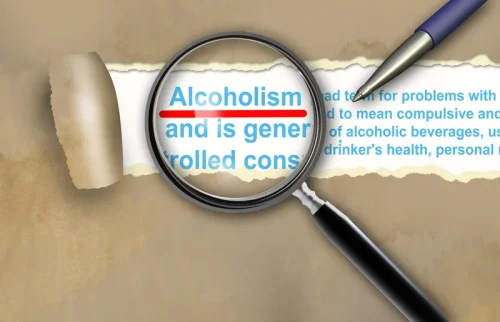
Its recreational use is widespread, and understanding how long it remains in the system is crucial for addressing health concerns, legal implications, and recovery processes. The effects of ecstasy, or MDMA, can vary from person to person, but in general, they don’t last as long as the drug stays in your system. MDMA affects both your mind and body, creating feelings of euphoria, increased energy, and emotional closeness to others. While these effects might seem positive, they can also lead to dangerous physical and mental consequences.
WE'RE READY TO HELP YOU BEGIN A NEW LIFE
All of the information on this page has been reviewed and verified by a certified addiction professional. You, nor your loved one, are under any obligation to commit to a Treatment X treatment program when calling the helpline. If you feel that any of our content is inaccurate, out-of-date, or otherwise questionable, please contact at If you feel that you or a loved one are struggling with MDMA, are increasing the amount you use and think that you may be becoming dependent, there are ways you can seek support.
How Long Does Ecstasy Stay in Your System?

Typically, withdrawal symptoms begin within a few https://ecosoberhouse.com/ days of stopping use and can last from a few days to several weeks. Some users might experience prolonged symptoms which may require professional treatment. A drug’s half-life is the time it takes for the amount of the drug in a person’s system to reduce by half.
Effective treatment for addiction, founded by people in recovery.
Exercise may increase thirst, which could prompt people to drink more water. The liver then breaks down the drug into chemical compounds called metabolites. MDMA and its metabolites pass to the kidneys, which will filter the drug out of the bloodstream. Ecstasy can be addictive, and the more you take it, the more of it you’ll need to experience the familiar high. Ongoing use can develop into a progressive and chronic addiction that can negatively affect your relationships, career, finances, schoolwork, and health.
- Some people have had bad reactions to it, including confusion, depression, heart attack, and even death.
- Similarly, vigorous exercise will not boost the body’s ability to metabolize molly.
- As a Schedule I drug, it is deemed to have a high potential for abuse and no accepted medical use, making its possession or use illegal under federal law.
- While MDMA can provide temporary feelings of joy and bonding, you should carefully consider its potential consequences.
- Its unregulated nature also raises concerns about purity and concentration, which can vary significantly.
- These are the most common tests used for ecstasy testing as they are reliable, relatively affordable, and minimally invasive.
- The effects of ecstasy, or MDMA, can vary from person to person, but in general, they don’t last as long as the drug stays in your system.
- Whilst these things can often feel pleasant, there are some adverse side effects (both physical effects and psychedelic effects) that you should be aware of.
- It’s thrilling to think that taking informed steps allows you to regain control over your life.
- This form of therapy is offered both in one-on-one counseling environments as well as group settings, where individuals can benefit from shared experiences and support.
- A 2010 study found that the antidepressant trazodone can lead to false positives on a commercial enzyme immunoassay test (Ecstasy EMIT II assay) that detects MDMA in a urine sample.
These tests are uncommon, but a study shows MDMA can be detected at least 3 months after use after just two uses. Call a compassionate admissions navigator to verify your insurance coverage and begin addiction treatment at an American Addiction Centers (AAC) facility. This is often called the comedown phase, and it can be a challenging part of the experience. Some people try to extend the high by taking more MDMA, but doing so increases the chances of side effects and makes the comedown even harder. No matter how it’s consumed, MDMA eventually passes through the liver, where it’s broken down into other chemicals (metabolites) that are then eliminated through urine or sweat. Ecstasy, also known as MDMA, affects the brain by changing how neurotransmitters work, especially serotonin and dopamine.


Contrary to what many advertised drug tests might promise, not all substances leave their telltale chemical signature in the body for the same amount of time. At Renaissance Recovery our goal is to provide evidence-based treatment to as many individuals as possible. Give us a call today to verify your insurance coverage or to learn more about paying for addiction how long does mdma stay in your body treatment.
How Long Does MDMA Stay in Your System: Factors for MDMA Metabolism

Having a slow metabolism due to older age, kidney problems, or poor health may result in a longer detection window. One study published in Therapeutic Drug Monitoring examined ecstasy drug test detection times. One study found it can be first detected in a person’s saliva anywhere from 15 minutes to one hour, 15 minutes after taking a what is alcoholism dose.
